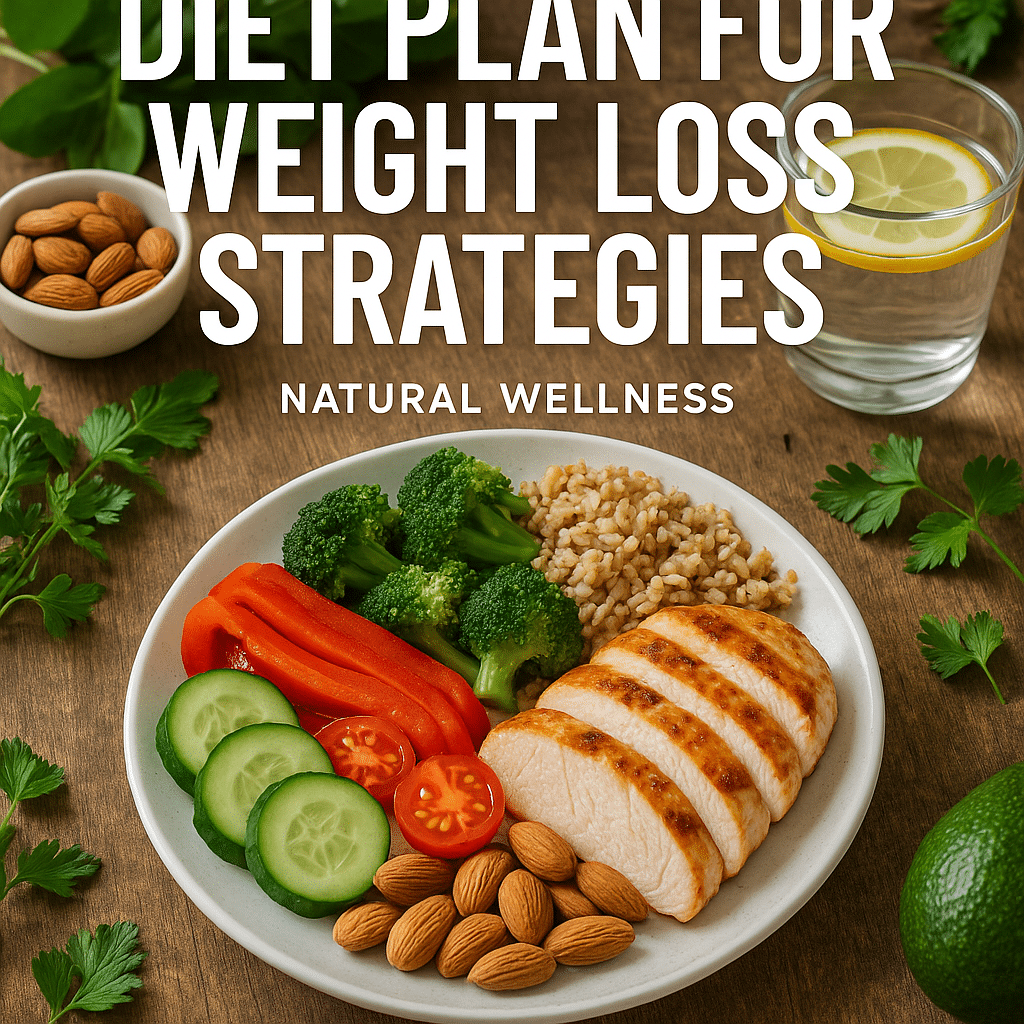Introduction
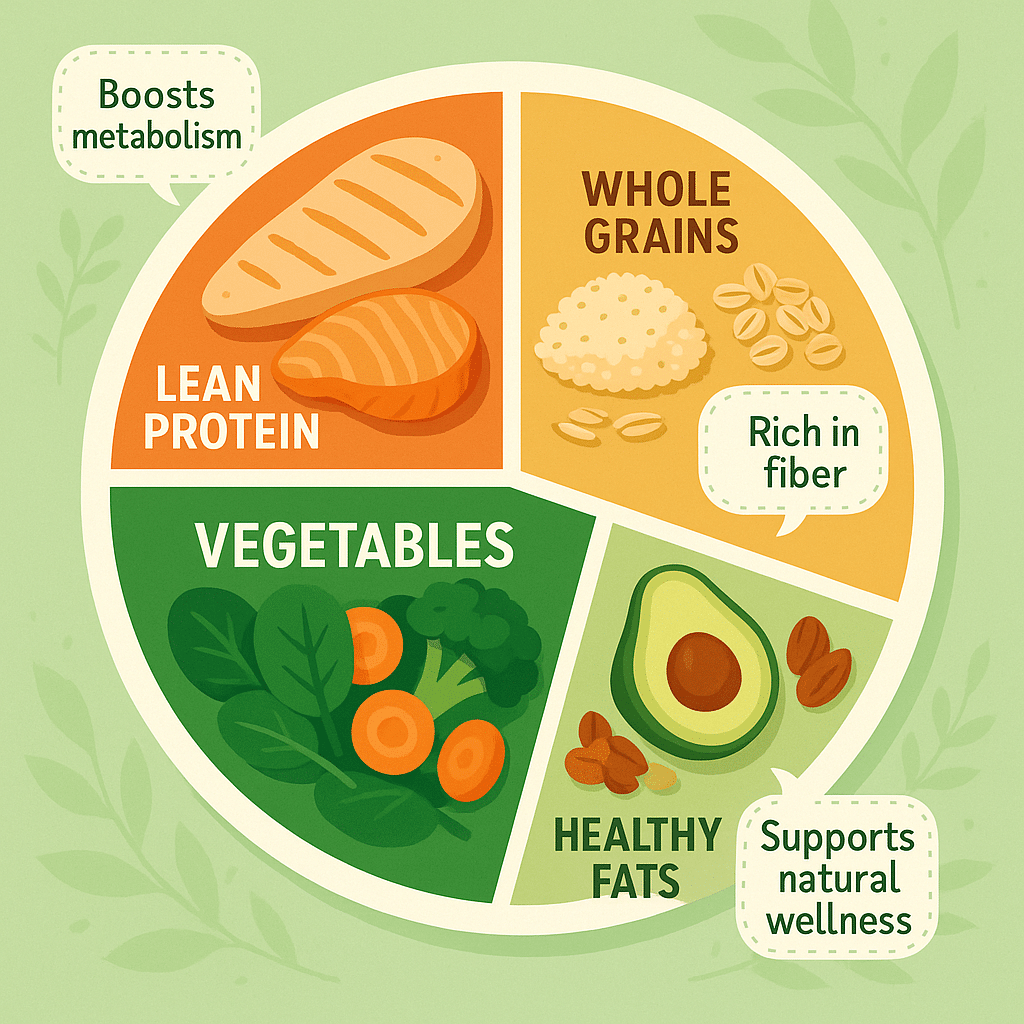
If you’re a health-conscious adult seeking a natural approach to wellness, then you’ve landed in the right place. Finding the best diet plan for weight loss is no easy feat—there’s a sea of conflicting advice out there! But I’m here to simplify things for you with practical, science-backed strategies that promote sustainable fat loss while enhancing your overall health. This comprehensive guide explores foundational concepts like calorie deficit and metabolic rate, dives into balanced macronutrient intake, highlights popular diet frameworks such as intermittent fasting and Mediterranean eating, and addresses personalized plans for different lifestyles and ages.
Moreover, I’ll share actionable tips on meal prepping, mindful eating, hydration, and overcoming those pesky weight loss plateaus, topped off with insights into natural detox and gut health. Whether you’re aiming for rapid fat reduction, muscle gain, or balanced long-term results, this article is tailored to empower and inspire your wellness journey.
Let’s embark on this together and uncover the best diet plan for weight loss that fits your unique needs, helping you achieve natural, lasting wellness.
Understanding the Science Behind Weight Loss
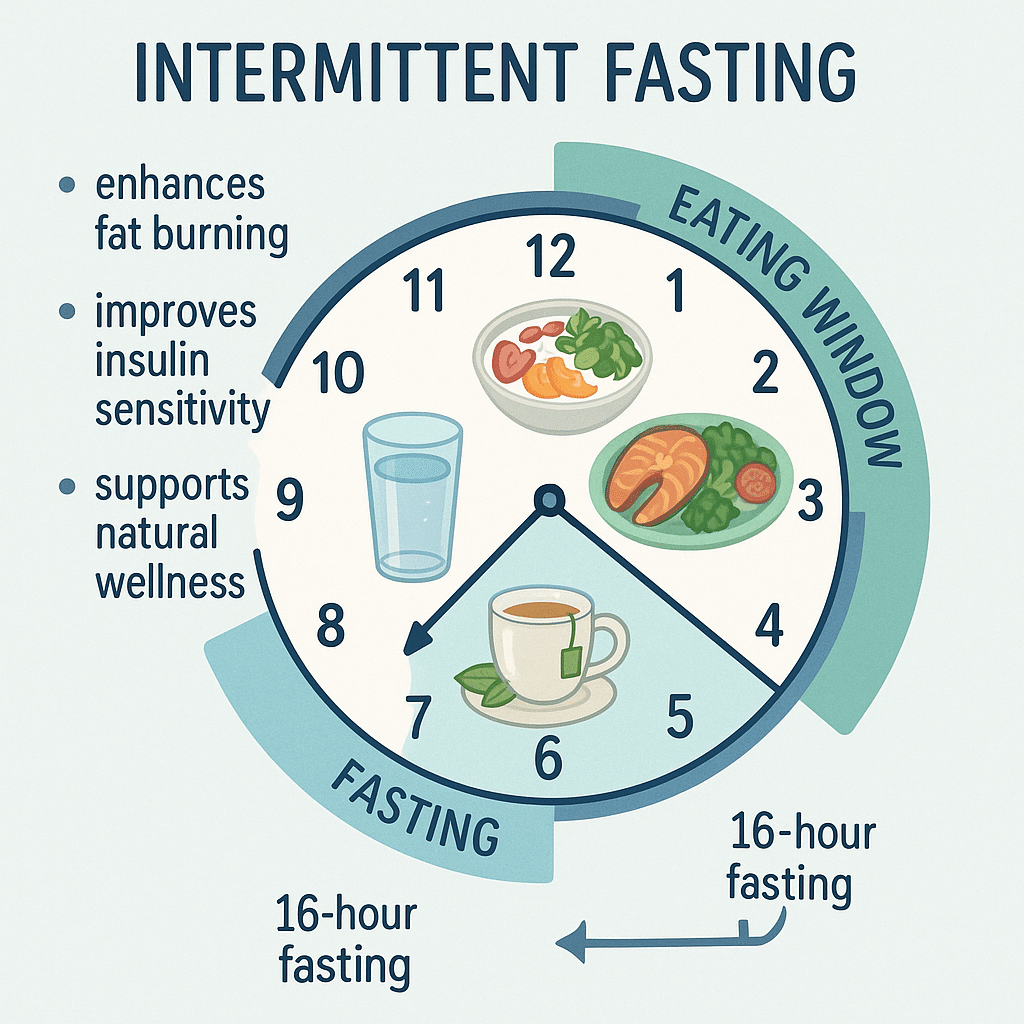
Calorie Deficit: The Foundation of Fat Loss
Let’s start with the basics: weight loss fundamentally boils down to a simple principle—calorie deficit. This means you consume fewer calories than your body burns over time. When this happens, your body turns to stored fat for energy, leading to weight reduction. It’s like dipping into your savings account during a dry spell—you’re using stored resources because incoming funds are temporarily lower.
Now, the tricky part is creating a calorie deficit without feeling deprived or sluggish. To achieve this, focus on nutrient-dense foods—ones rich in vitamins, minerals, and fiber—that fill you up on fewer calories. Instead of obsessing over every calorie, aim for whole, minimally processed foods like fruits, veggies, lean proteins, and whole grains. Combining this with portion control and mindful eating naturally encourages a healthy deficit.
Importantly, extreme calorie cutting isn’t sustainable and often backfires by slowing your metabolic rate (more on that soon), resulting in weight loss plateaus or muscle loss. Striking a balance is key to long-term success.
Role of Metabolic Rate and How to Boost It Naturally
Your metabolic rate—the speed at which your body burns calories—varies based on factors like age, genetics, muscle mass, and activity level. A faster metabolism means your body burns more calories at rest, which can make weight loss easier.
Here’s some good news: you can enhance your metabolic rate naturally! Incorporating strength training builds lean muscle, which is metabolically active tissue that burns more calories daily. Also, eating smaller, frequent meals with balanced macronutrients (protein, carbs, fats) can help keep your metabolism humming.
Hydration plays a surprising role—drinking cold water may induce your body to burn additional calories warming it up. Plus, foods with a high thermic effect, like protein-rich items, require more energy to digest, boosting calorie burn modestly.
Remember, adopting lifestyle habits that support metabolic health is a cornerstone of the best diet plan for weight loss.
Key Principles of the Best Diet Plan for Weight Loss
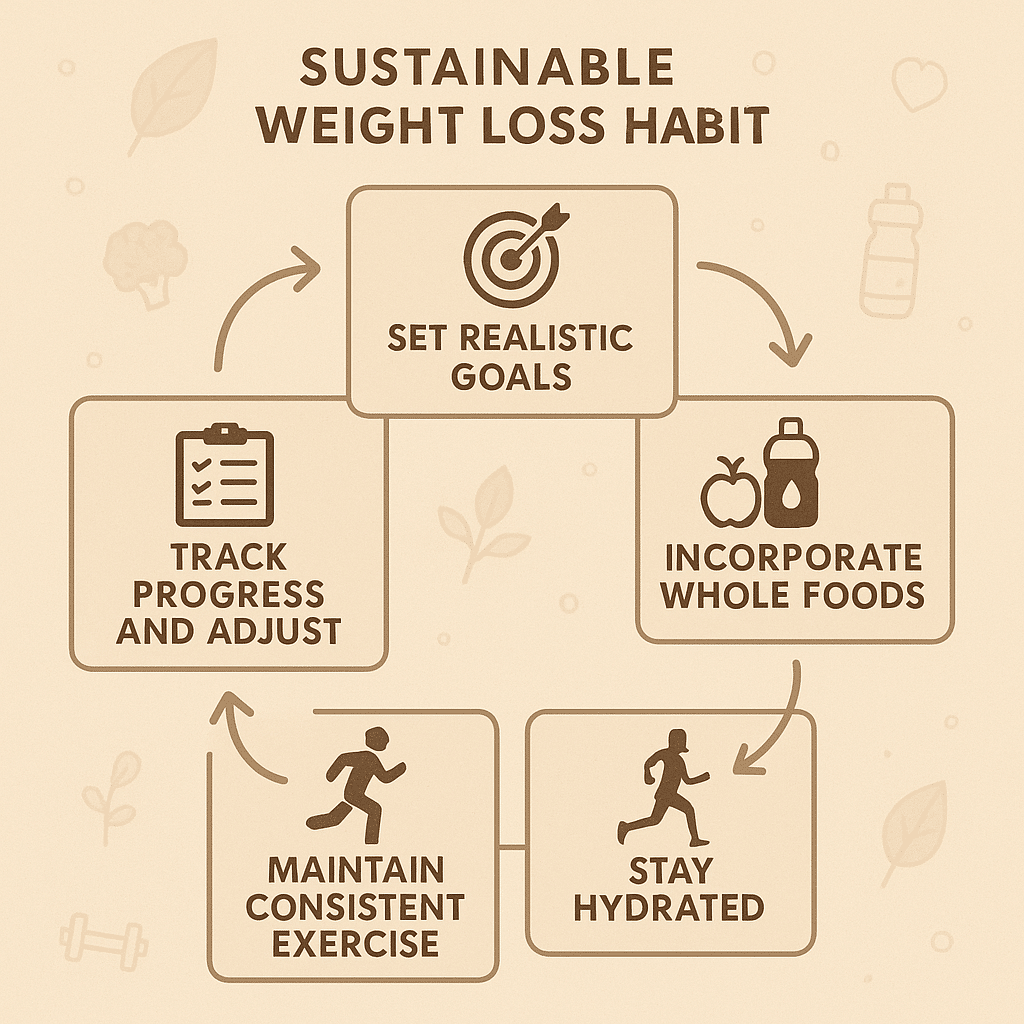
Macronutrient Balance: Protein, Carbs, and Healthy Fats
Understanding the role of macronutrients—protein, carbohydrates, and healthy fats—is crucial for crafting an effective weight loss diet. Each serves a unique purpose.
-
Protein is king for weight loss, helping preserve muscle mass while you shed fat. It also promotes satiety, so you feel fuller longer, reducing overeating. Lean sources include chicken breast, turkey, fish, beans, tofu, and low-fat dairy.
-
Carbohydrates often get a bad rap, but they’re a vital energy source. The trick is choosing complex, low-glycemic carbs like whole grains, legumes, and veggies that stabilize blood sugar and keep hunger at bay.
-
Healthy fats—think avocados, nuts, seeds, and olive oil—support hormone production and brain function. They also slow digestion, promoting fullness.
Balancing these macronutrients based on your lifestyle and preferences facilitates sustainable eating habits, key to long-term weight management.
Importance of Fiber-Rich and Nutrient-Dense Foods
Fiber-rich foods, found abundantly in fruits, vegetables, legumes, and whole grains, are a powerhouse for weight loss. Fiber adds bulk to your diet, supporting digestion and promoting a feeling of fullness without extra calories. Plus, nutrient-dense foods provide essential vitamins and minerals your body needs to function optimally during calorie reduction.
Including plenty of colorful veggies, fresh fruits, nuts, seeds, and lean proteins ensures your meals are rich in antioxidants and phytochemicals that enhance natural wellness beyond just shedding pounds.
Portion Control and Mindful Eating Habits
Even healthy foods can contribute to weight gain if portions are too large. Portion control is fundamental to the best diet plan for weight loss, especially when pairing it with mindful eating techniques.
Mindful eating involves slowing down to appreciate the flavors, textures, and aromas of your meals, paying attention to hunger cues rather than eating out of boredom or stress. This practice helps prevent overeating and improves digestion.
Using smaller plates, measuring portions initially, and avoiding distractions (like TV or smartphones) during meals are simple ways to develop mindful and controlled eating habits that stick.
Exploring Popular and Effective Diet Plans
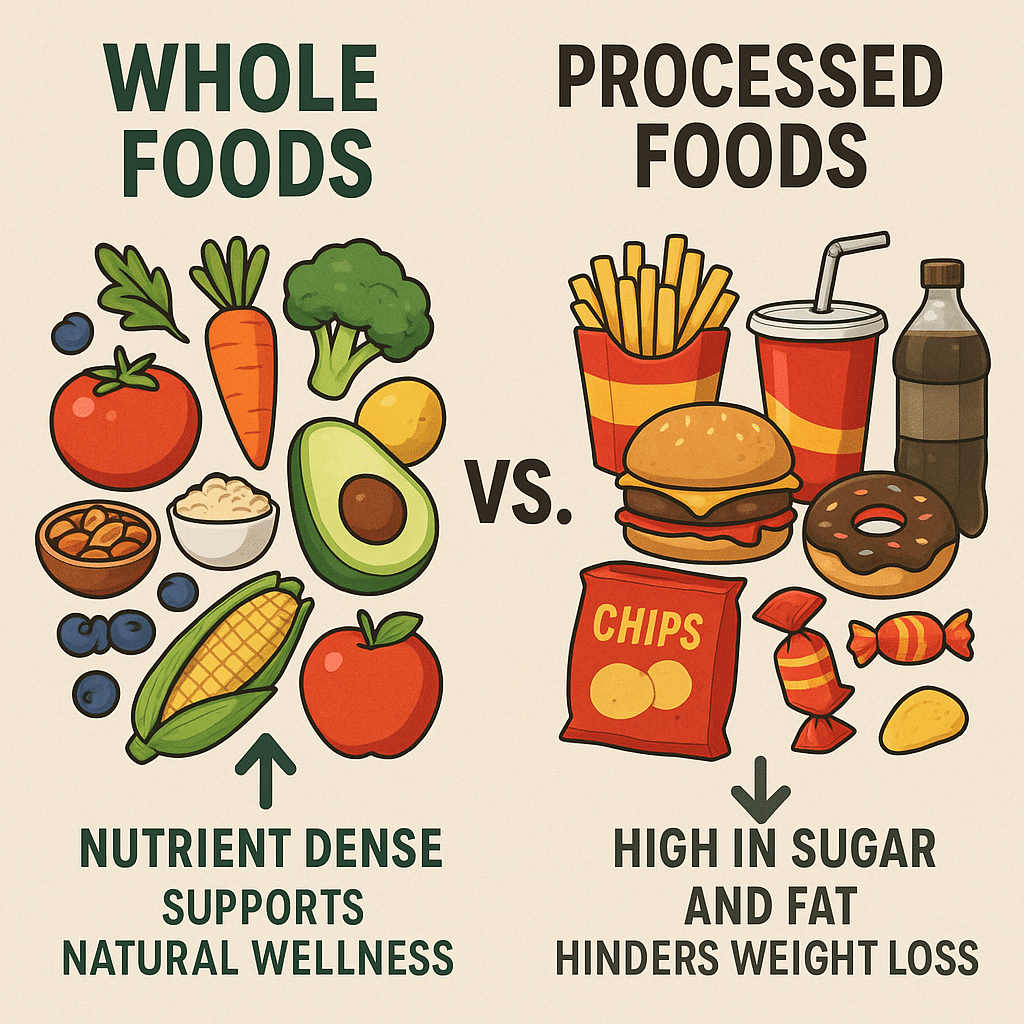
Intermittent Fasting Diet Plan for Weight Loss and Wellness
Intermittent fasting (IF) has gained massive popularity and for good reason. It involves cycling between periods of eating and fasting—for example, the 16:8 method (16 hours fasting, 8 hours eating window). IF naturally limits calorie intake without counting calories obsessively.
Research indicates that IF can improve metabolic rate, increase fat burning, and support cellular repair processes. Many find it simple to follow and adaptable to their lifestyle.
It’s essential to focus on nutrient-dense foods during eating windows and stay hydrated. IF can be particularly powerful in combination with balanced nutrition and exercise.
Best Low-Carb Diet Plan for Sustainable Fat Reduction
A low-carb diet reduces intake of sugars and starches, emphasizing proteins and healthy fats. It lowers insulin levels, encouraging your body to tap into fat stores for energy.
Diets like the ketogenic or Atkins are popular, but a moderate low-carb plan often delivers the best sustainability with fewer side effects. Incorporate leafy greens, moderate fruits, nuts, seeds, and quality protein.
However, monitor your energy levels and consult a healthcare provider if you have underlying conditions before starting a very low-carb plan.
Mediterranean Diet Plan for Heart Health and Weight Loss
The Mediterranean diet is often hailed as one of the healthiest eating patterns worldwide. It focuses on whole grains, fruits, vegetables, legumes, nuts, olive oil, and moderate fish, with limited red meat and processed foods.
This diet provides a rich array of antioxidants, healthy fats, and fiber, supporting heart health while fostering gentle, sustainable weight loss. Its flexible, varied nature makes it easy to adopt for life.
Plant-Based Diet Plan for Weight Loss and Detoxification
A plant-based diet emphasizes fruits, vegetables, beans, legumes, nuts, seeds, and whole grains, with minimal or no animal products. It’s naturally rich in fiber, low in calorie density, and loaded with phytochemicals that aid detoxification.
This diet plan nurtures your digestive health, enhances satiety, and boosts metabolism. Transitioning can be simple—start with a few plant-based meals per week and build from there.
Personalized Diet Plans for Different Needs and Lifestyles
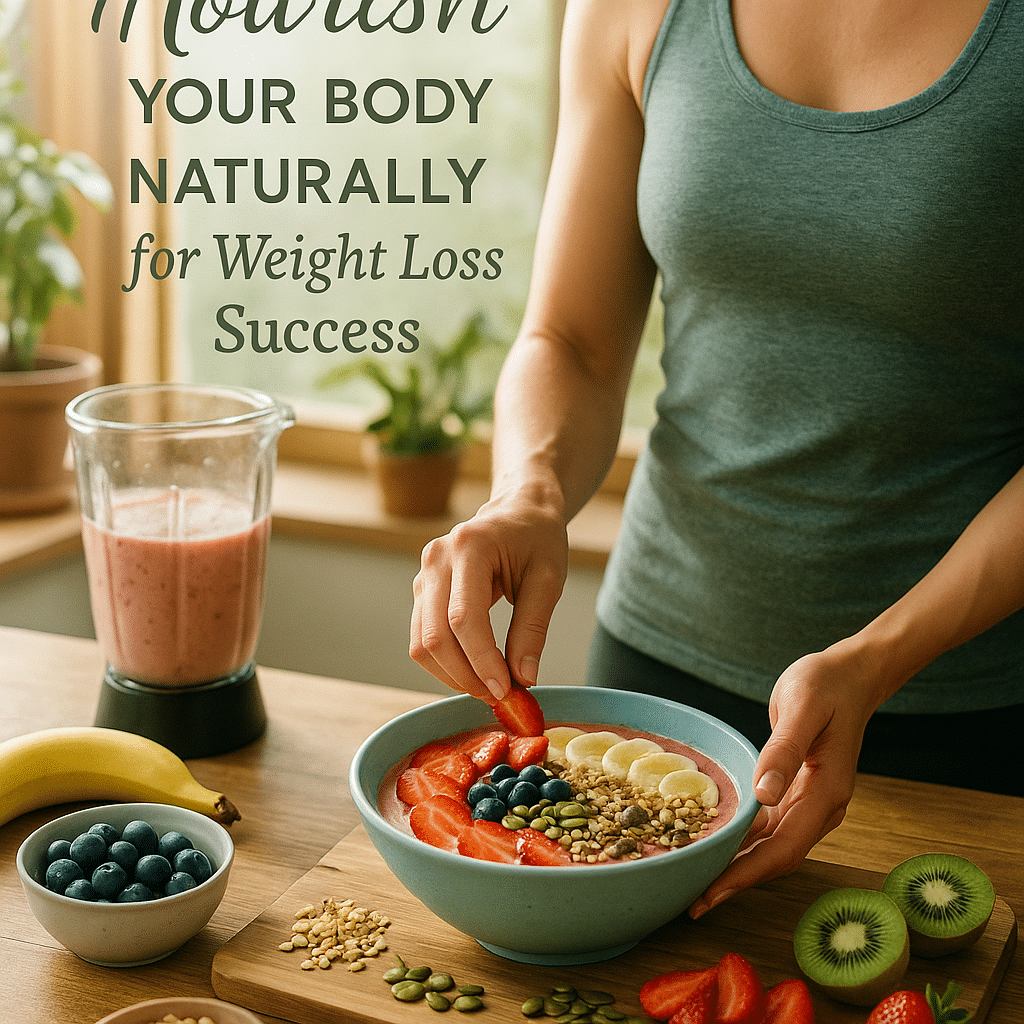
Best Diet Plan for Weight Loss Over 40: Hormonal and Metabolic Considerations
After 40, metabolic rate slows, and hormonal changes affect fat distribution, making weight loss trickier. The best diet plan for weight loss over 40 focuses on high-protein intake to maintain muscle, plenty of fiber-rich vegetables, and healthy fats to balance hormones.
Incorporating strength training and stress management also supports metabolic health. Small, frequent meals and magnesium-rich foods like leafy greens help stabilize blood sugar and energy.
Best Diet Plan for Weight Loss with Diabetes: Managing Blood Sugar Naturally
For those managing diabetes, controlling blood sugar is paramount. The best diet plan for weight loss with diabetes emphasizes low-glycemic index carbs, lean proteins, and healthy fats to prevent spikes and crashes.
Consistent meal timing, portion control, and avoiding refined sugars support both weight loss and stable blood glucose. Working closely with a healthcare provider ensures personalized adjustments.
Best Diet Plan for Weight Loss and Muscle Gain: Combining Nutrition with Strength Training
Want to trim fat but keep or build muscle? This plan balances a mild calorie deficit with high protein intake and nutrient timing to fuel workouts and recovery. Include lean meats, dairy, legumes, and supplements like whey protein if needed.
Pair with resistance exercise at least 3 times a week. Don’t skimp on healthy fats and complex carbs for energy and hormonal health.
Practical Tips for Implementing the Best Diet Plan for Weight Loss
Meal Prepping and Planning for Consistency and Success
One secret to sticking with any diet plan? Meal prepping. Set aside a few hours each week to prepare batches of healthy meals and snacks. This reduces decision fatigue and the temptation to reach for unhealthy options when busy.
Use airtight containers and creative recipes to keep things interesting. Apps like Mealime or Preppro can help streamline planning.
Hydration and Its Crucial Role in Weight Management
Drinking ample water aids digestion, curbs false hunger signals, and supports metabolism. Aim for 8-10 glasses per day, more if active or in hot climates. Herbal teas and infused water add flavor without calories.
Overcoming Weight Loss Plateaus: Adjustments and Strategies
Plateaus happen—they’re frustrating but normal. When weight stalls, consider:
- Reassessing portion sizes
- Increasing activity or strength training
- Mixing up your diet to prevent metabolic slowdown
- Prioritizing sleep and stress management
Don’t lose heart; adapt your plan with patience.
Synergy of Diet and Exercise: Enhancing Weight Loss Outcomes
Incorporating Physical Activity Without Overwhelm
You don’t need to become a gym rat overnight. Start with walking, yoga, or bodyweight exercises at home. Aim for at least 150 minutes of moderate activity weekly.
Exercise boosts metabolic rate, preserves lean mass, and improves mood—an all-around win in your weight loss journey.
Mindfulness and Behavior Change for Long-Term Success
Weight loss isn’t just physical—it’s psychological. Mindfulness techniques help reduce emotional eating and build a healthier relationship with food. Journaling, meditation, or mindful eating practices are powerful tools.
Unique Insights: Integrating Traditional Remedies and Modern Nutrition Science
Natural Detox Strategies Within the Best Diet Plan for Weight Loss
Your liver and kidneys naturally detoxify, but supportive strategies help:
- Drinking warm lemon water in the morning
- Consuming antioxidant-rich foods like berries, garlic, and turmeric
- Prioritizing fiber to aid toxin elimination
These gentle detox methods complement weight loss without extreme cleanses.
Gut Health Connection: Probiotics and Prebiotics for Weight Control
Emerging science shows gut flora impacts metabolism and weight. Feeding healthy bacteria with prebiotics (fibrous foods like onions, garlic, asparagus) and consuming probiotics (yogurt, kefir, fermented veggies) may support fat loss and digestion.
Quick Takeaways
- Weight loss hinges on a sensible calorie deficit paired with nutrient-dense foods.
- Balancing macronutrients—protein, carbs, and healthy fats—is key to fullness and metabolism.
- Intermittent fasting, Mediterranean, low-carb, and plant-based diets provide effective frameworks.
- Tailoring plans to age, health conditions, and lifestyle increases success chances.
- Meal prepping, hydration, mindfulness, and gentle exercise help sustain progress.
- Natural detox and gut health play underrated roles in holistic wellness.
- Patience and consistency trump quick fixes—embrace a lifestyle shift.
Conclusion: Crafting Your Best Diet Plan for Weight Loss Journey
Embarking on your weight loss journey with the best diet plan for weight loss means embracing a multi-faceted approach rooted in science and tailored to your unique wellness goals. Remember, there’s no one-size-fits-all solution. By understanding calorie deficit, metabolic health, macronutrient balance, and mindful eating, you equip yourself to make informed choices that nurture both body and mind.
Popular diet plans like intermittent fasting or the Mediterranean diet offer flexible blueprints, but personalization—especially regarding age, health conditions, and activity levels—maximizes effectiveness. Implementing practical habits like meal prepping and hydration, while addressing gut health and detoxification naturally, empowers sustainable change.
Above all, be kind to yourself throughout this process. Weight loss is a journey, not a race. Celebrate small victories, stay curious, and let wellness be your compass. If you’re ready to take the next step, consider consulting a registered dietitian to tailor a plan that aligns perfectly with your lifestyle.
Here’s to achieving natural wellness and lasting transformation—one mindful bite at a time!
External Resources:
- Mealime Meal Planning App
- Preppro Meal Prep App
- Academy of Nutrition and Dietetics
- American Diabetes Association
- Mayo Clinic on Intermittent Fasting

